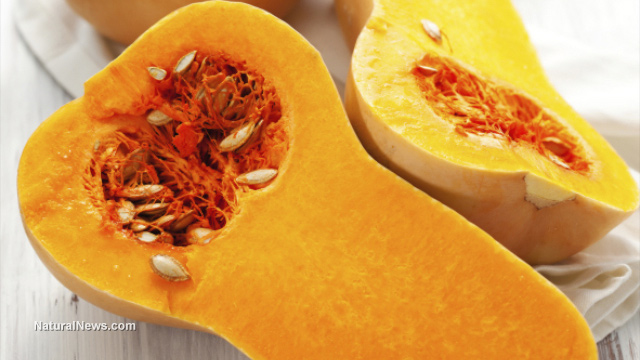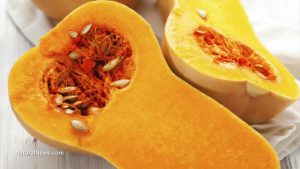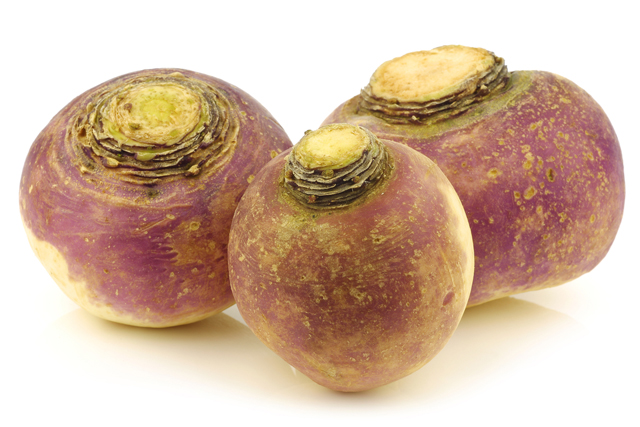Winter Squash – sources, health benefits, nutrients, uses and constituents at NaturalPedia.com
07/29/2017 / By Frances Bloomfield

Winter squashes are warm-season squash species that are harvested and eaten when the fruit and seeds have matured. The most popular varieties of winter squash are acorn squash, butternut squash, delicata squash, pumpkin, kabocha squash, and spaghetti squash. Winter squashes are among the oldest crops in the world, having been cultivated and consumed by the peoples of temperate South America for thousands of years. Nowadays, they’re grown in North America, China, Japan, Romania, and Turkey for their flavor and impressive nutritional value.

List of known nutrients
Though generally present in different winter squash types in varying amounts, winter squash as a whole offers a plethora of nutrients like:
- Antioxidants
- Carotenoids
- Copper
- Dietary fiber
- Folate
- Magnesium
- Manganese
- Omega-3 fatty acids
- Potassium
- Vitamin A
- Vitamin B2 (Riboflavin)
- Vitamin B3 (Niacin)
- Vitamin B5 (Pantothenic Acid)
- Vitamin B6 (Pyridoxine)
- Vitamin C
- Vitamin K
The carotenoid levels are highest in butternut squash, which are indicated by a yellow-orange color. Carotenoid not only gives butternut squash its signature hue, but it makes the fruit essential for vision, skin, heart, and kidney health as well.
Butternut squashes are excellent sources of vitamin C too, with one serving containing 35 percent of the recommended daily value of this immune system-boosting nutrient.
Pumpkins, butternut squashes, acorn squashes, and spaghetti squashes are loaded in dietary fiber and low in fat. As such, they’re all good for the heart and the digestive system.
Medicinal uses for winter squash
Thanks to the wealth of health-friendly nutrients, winter squashes are helpful in the prevention of many diseases, such as:
- Alzheimer’s disease
- Benign prostatic hyperplasia
- Cancer
- Constipation
- Diabetes
- Diarrhea
- Digestive disorders
- Diverticulitis
- Heart disease
- Irritable bowel syndrome
- Osteoporosis
- Pulmonary abscess
- Rheumatoid arthritis
- Stroke
- Type 2 diabetes
Frequent consumption of all varieties of winter squash can greatly lower one’s risk of stroke and heart disease. This is because winter squashes as a whole are rich in potassium and antioxidants that keep the heart functioning properly. Moreover, the anti-inflammatory omega-3 fatty acids found in winter squash play a role in heart health as well.
Winter squash can reduce the symptoms of rheumatoid arthritis by supplying a decent amount of vitamin B6 to the body.
Body systems supported by winter squash
Winter squash can support and nourish:
- Digestive system, including stomach
- Heart
- Immune system, including spleen and pancreas
- Lungs
- Ocular system
- Skeletal system
- Skin
The high amounts of dietary fiber in winter squash aid the digestive system by normalizing bowel movement and adding bulk to stool. As a result, the risks of constipation, diarrhea, irritable bowel syndrome, and diverticulitis or intestinal inflammation are greatly reduced.
Thanks to the great content of vitamins A and C, winter squash can play a role in maintaining a healthy and strong immune system.
Ways to use winter squash
Just as there are many varieties of winter squash, there are plenty of ways to consume them as well. Everything from soups and cookies to salads and lasagna can be improved with the addition of winter squash. They can be prepared simply as well: just dip bits of winter squash into batter and then fry them.
Even winter squash seeds can be eaten. Dried, roasted, and raw are just some of the ways to prepare and consume the seeds. They can be ground into a powder and mixed with breads and cereals too.
Where to learn more
- Experts tout the health benefits of winter squash
- Three Sisters: Growing Beans, Corn, and Squash
- Top Ten Best Superfoods for Fall
- Winter squash with recipe for squash fries
Summary
Although are multiple varieties of winter squash, all of them are generally healthy and beneficial for the body. Winter squash can decrease the risks of heart disease, stroke, constipation, rheumatoid arthritis, and diarrhea. Additionally, winter squash can nourish the heart, and digestive and immune systems.
Sources include:
WHFoods.com
CheatSheet.com
OrganicAuthority.com
HealthBenefitsTimes.com
EatingWell.com
Tagged Under: Winter squash




















